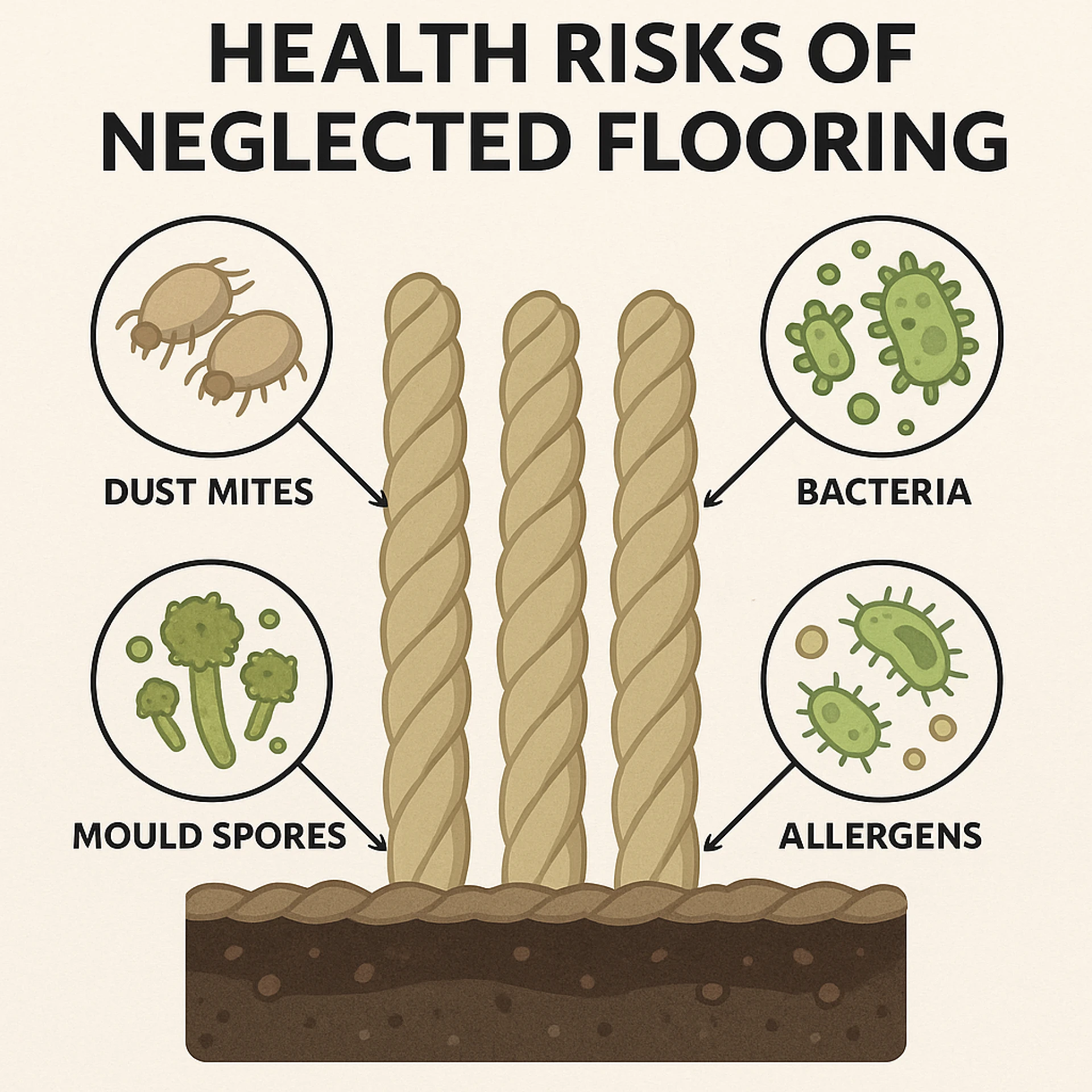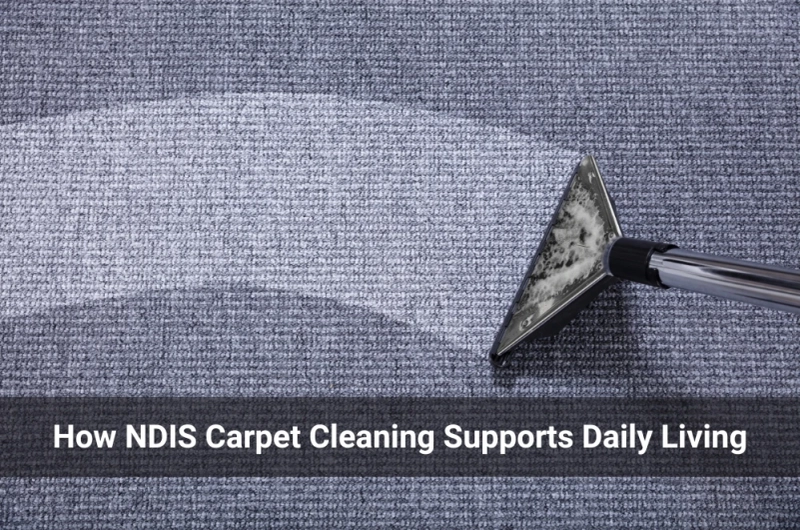For people supported by the NDIS, a clean home is more than just nice to have — it’s essential for health, mobility, and everyday comfort. From allergy triggers to tripping hazards, neglected carpets can pose real risks. That’s where NDIS urgent carpet cleaning comes in. It provides fast, professional help when regular cleaning just won’t cut it, especially after spills, accidents, or health-related emergencies.
I once visited Leo, an NDIS participant who used a wheelchair. His carpet had accumulated years of grit that ordinary vacuums couldn’t shift. After a professional deep-clean, he could wheel around without coughing or getting stuck. The relief on his face said it all.
How NDIS Core Support applies to household cleaning
Let’s be honest — the NDIS isn’t always straightforward when it comes to what it does and doesn’t fund. But, household tasks like vacuuming, dusting, and yes, carpet cleaning, can be approved when they relate to daily living goals.
NDIS may cover carpet cleaning when:
- The participant has limited physical ability to clean themselves
- The flooring presents health or safety risks (e.g. allergies, trip hazards)
- The service aligns with stated goals like independent living or hygiene
- There’s documented evidence showing the need
What else counts as cleaning-related support
Household maintenance under the NDIS isn’t limited to just paying someone to do the work. In certain cases, participants may be eligible for assistive equipment that helps them complete domestic tasks more safely and independently, especially if their disability limits movement, grip strength, or coordination.
According to official guidelines, NDIS household products may include assistive technologies designed to reduce effort or risk during home cleaning. These are typically considered low-cost or mid-cost items under the broader Assistive Technology category.
Examples of potentially fundable supports include:
- Modified vacuum cleaners that are easier to manoeuvre
- Long-handled or ergonomic brushes for reduced bending
- Portable cleaning aids suited to wheelchairs or low mobility
- Lightweight or adapted mops and dusters
Keep in mind: everyday cleaning supplies like gloves or sprays are generally considered day-to-day living costs, and are not typically funded on their own. However, tools that directly support functional goals may be included with proper justification.
Urgent cleaning: A safety net for sudden issues
Not all cleaning can be scheduled neatly into a roster. Sudden hygiene risks — like accidents, pet incidents, or mould outbreaks — can require a same-day response. In NDIS households, this isn’t a luxury. It’s part of keeping the space liveable.
Angela, one of our previous clients, had respiratory challenges. After a leak soaked her lounge carpet, a musty smell developed overnight. We organised a rapid-response clean. Within hours, her symptoms eased.
When urgent carpet cleaning might be required:
- Water damage or leaks causing mould
- Accidents involving pets, incontinence, or illness
- Airborne irritants impacting respiratory health
- Unexpected visitors (e.g. housing inspection)
Health risks of neglected flooring

Here’s something most plans don’t spell out: carpets are one of the biggest reservoirs for allergens. Dust mites, mould spores, bacteria — all of them can thrive in fibres we don’t see. For people with disabilities, poor air quality or trip hazards can increase risks dramatically.
Professionally cleaned carpets help by:
- Removing embedded bacteria and dust mites
- Reducing triggers for asthma and eczema
- Improving mobility with smoother flooring
- Preventing respiratory flare-ups from hidden mould
How to advocate for carpet cleaning in your plan
If you're preparing for a plan review or setting up an NDIS application, here’s how to request support for carpet cleaning:
- Link it to daily function: Explain how clean flooring helps with mobility, breathing, or mental health
- Gather quotes: Get a written estimate from a local cleaner familiar with NDIS billing
- Use the right language: Refer to “assistance with daily living” or “hygienic home maintenance”
- Consult your team: Support coordinators can help frame the request using NDIA-approved formats
What NDIS carpet cleaning will and won’t cover
When it comes to getting funding for carpet cleaning, not everything is black and white. The NDIS will only support services or tools that meet the “reasonable and necessary” test, and every participant's plan is different.
Here’s what you can usually claim:
- Professional carpet cleaning when it supports daily living goals
- Assistive technology for cleaning (like modified vacuums)
- Emergency hygiene cleans with documented risk
Here’s what’s usually excluded:
- General household expenses (e.g. cleaning sprays, mops)
- Services that aren't disability-related
- Cleaning for purely aesthetic or cosmetic reasons
To help navigate these grey areas, check out this breakdown of NDIS registered cleaners and what’s likely to be accepted or rejected. It’s a helpful primer before discussing options with a support coordinator or plan manager.
Choosing the right NDIS-aware cleaner
Not all cleaning providers are familiar with NDIS frameworks. While being registered is helpful, experience matters more. A strong provider will understand plan categories, offer tailored reports, and be flexible with invoices.
Look for providers who:
- Have experience working in NDIS homes
- Understand how to align services with plan goals
- Can supply reports or logs for the plan managers
- Offer flexible, tailored scheduling options
Final thoughts
Carpet cleaning isn’t about being picky. It’s about protecting people, especially those whose health, comfort, or mobility depends on a safe and hygienic home.
If you're part of the NDIS or supporting someone who is, consider looking into how this service can be funded. It might seem small, but the impact is felt every day, underfoot.
Clean flooring supports better breathing, safer movement, and overall well-being. And beyond the physical benefits, it restores peace of mind for participants, carers, and families alike. The more we treat cleaning as a form of care, the more inclusive and dignified our homes become for everyone.


